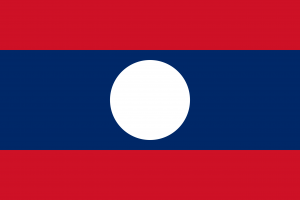Difference between revisions of "Language/Lao/Grammar/Question-Words"
m (Quick edit) |
m (Quick edit) |
||
| Line 1: | Line 1: | ||
<span pgnav> | |||
{| class="wikitable pg_template_nav" | |||
|[[Language/Lao/Culture/Festivals-and-Celebrations|◀️ Festivals and Celebrations — Previous Lesson]] | |||
|[[Language/Lao/Grammar/Negations|Next Lesson — Negations ▶️]] | |||
|} | |||
</span> | |||
{{Lao-Page-Top}} | {{Lao-Page-Top}} | ||
| Line 104: | Line 111: | ||
{{Lao-Page-Bottom}} | {{Lao-Page-Bottom}} | ||
<span pgnav> | |||
{| class="wikitable pg_template_nav" | |||
|[[Language/Lao/Culture/Festivals-and-Celebrations|◀️ Festivals and Celebrations — Previous Lesson]] | |||
|[[Language/Lao/Grammar/Negations|Next Lesson — Negations ▶️]] | |||
|} | |||
</span> | |||
Revision as of 22:42, 2 April 2023
| ◀️ Festivals and Celebrations — Previous Lesson | Next Lesson — Negations ▶️ |
Lao Language is a tonal language with some interesting features that you may not meet before in the other languages. One of these features is the use of "Question Words." This lesson will introduce you to the concept of "Question Words," the importance of their use and their impact on Lao grammar.
What are Question Words in Lao Language?
"Question Words" in Lao language are essential to form questions to ask, to gather information, or to confirm or deny a statement's validity. These question words are used to ask specific information and to show emphasis.
Like most languages, Lao has a set of standard question words that are frequently used in daily life. As you continue your journey in learning Lao language, it's good to become more familiar with these terms and learn how to use them in context.
The following table presents the most common question words in Lao, including their transliteration, meaning and several examples.
| Lao | Pronunciation | English Translation |
|---|---|---|
| ເຈົ້າເຮົາແມ່ນແນ່ໃຈໃດ(My name is Nae, How are you?) | Chao-long-mae-nai-nae-nae-chai-dai | What is your name? (Lit. How is your name?) |
| ເຈົ້າໄດ້ໃຫ້ແມ່ນເວັກນ້ອຍບໍ?(May I borrow your pen, please?) | Chao-long-dai-mah-ne-woke-now-y-bot? | Can I have (borrow) your pen? |
| ໃຈຫວັງໄອທີ່ເຮົາຈະບໍ່ເຫັນທຳອິດໃດ?(How do I know if I pass the exam?) | Chai-waang-hai-tai-hor-long-cer-bo-mer-lor-dai? | How do I know if... |
| ຕັ້ງແຕ່ໃດນີ້ບໍ່ແມ່ນແຜ່ນດີເດີມ?(When will your brother come back?) | Tung-tai-dai-ni-bo-pai-long-phaen-dai-dern-mor? | When will... |
| ເຈົ້າໄດ້ໃຫ້ข้าวไหม?(Would you give me rice?) | Chao-long-dai-mah-ne-kao-mai? | Would you give me... |
| ແຜ່ນດີເດີມຂ້ອຍເລີຍ(My brother returned last night) | Phaen-dai-dern-khao-neune-long-lye (Hong)-mai-tong? | When did... |
As you notice, some Lao question words are simple, like "ເຈົ້າ" (chao-long) which means "you," and others are more complex, like "ໃຈຫວັງໄອທີ່" (chai-waang-hai-tai), which means "how do I know if."
The list is not exhaustive, and some other question words' forms are also possible in Lao language. However, the ones we presented remain the most frequently used ones.
The thorough comprehension and use of these words form an essential part of your learning journey while developing conversational and functional Lao language proficiency.
How to effectively use Questions Words in Lao Language
To effectively use question words in Lao language, it is important first to understand the context in which these words are used. Therefore, it is a good idea to have an understanding of basic grammar elements, such as sentence structure and verb conjugation, before diving into the use of question words.
Furthermore, it is important to familiarize yourself with the declension and conjugation rules of the question words themselves. Nonetheless, Lao question words do not have conjugations like verbs, which may ease the learning process to some extent.
Once you have memorized common phrases and begun to visualize how individual words fit into sentences, you'll be well on your path to utilizing question words effectively in Lao language.
Generally, question words are used as follow:
They introduce wh-questions
Wh-questions begin with question words such as:
- ເຈົ້າຫນີ້ (chao-ni) - who
- ແກ່ນວ່າ (kaen-wai) - what
- ໃຈຫວັງໄອທີ່ (chai-waang-hai-tai) - how
- ແຜ່ນດີເດີມ (phaen-dai-dern) - when
- ເຮົາຄວນດາວອນນີ້ (kua-daw-orn-ni) - where
- ເຈົ້າຕິດຕາມແລະອັດຕາມວ່າ (chao-tit-tam-lae-ed-tam-wai) - why
These words, in combination with appropriate forms of verbs and sentence particles, can generate a wide range of questions. For example:
- ເຈົ້າຫນີ້ຈະເພີນຄືນມາບໍ່? (Chao-ni-jang-puen-kun-ma-boi?) - Would you bring me here?
- ແກ່ນວ່າຮັກຄວາມທີ່ເຈົ້າຖືກໄດ້? (Kaen-wai-huk-kua-tai-chao-thue-dai?) - What are you doing?
- ແຜ່ນດີເດີມຕາມແລະອັດຕາມວ່າເຈົ້າຈະເຂົ້າມາ? (Phaen-dai-dern-tam-lae-ed-tam-wai-chao-jang-ko-ma?) - When will you come?
- ໃຈຫວັງໄອທີ່ເຮົາຈະລີກບໍ່? (Chai-waang-hai-tai-kua-chao-lee-bor?) - How will I know?
- ເຮົາອາດຈະໄດ້ອາກອນທີ່ເກີຍ? (Kua-are-jang-dai-a-kon-tai-ko-y?) - Where can I get coffee?
- ເຈົ້າຕິດຕາມແລະອັດຕາມວ່າວ່າເຈົ້າເມື່ອຂອງການປະກັນຕາມເລກທີ່ລະບົບໄດ້ບໍ? (Chao-tit-tam-lae-ed-tam-wai-wai-wai-jang-mee-kong-nhai-tae-ta-lauk-dai-bo?) - Why does the computer show an error message?
They add emphasis to an answer
In Lao language, the same question words that begin wh-questions can also be used to add emphasis to an answer. When a question word follows a statement, it places emphasis on the statement's content, forcing the listener to think to provide more information. For example:
- ຂໍ້ຄວາມເ
Other Lessons
- Nouns
- Personal pronouns
- Comparatives
- Verb to be
- Pronouns
- Negations
- Present Tense
- Superlatives
- Give your Opinion
- Demonstrative Pronouns
Sources
- Lao grammar - Wikipedia
- Lao Language - Why does it get confused with Thai? - Bilingua
- Lao and Thai - same, same but not really - Pulse of Asia
| ◀️ Festivals and Celebrations — Previous Lesson | Next Lesson — Negations ▶️ |
